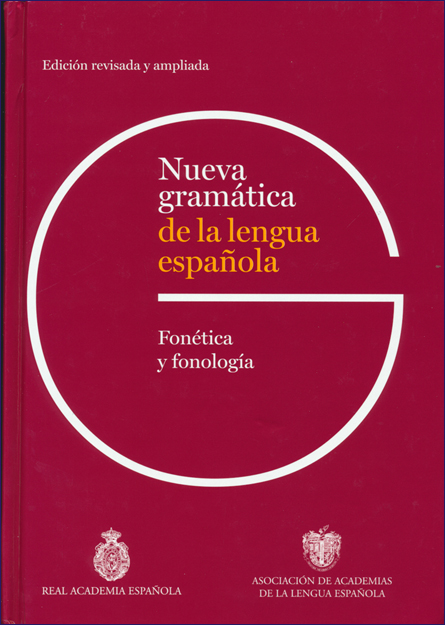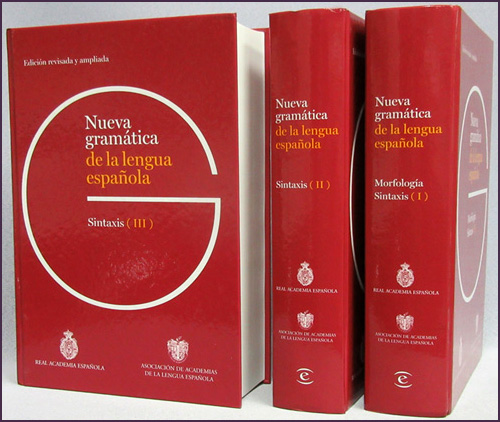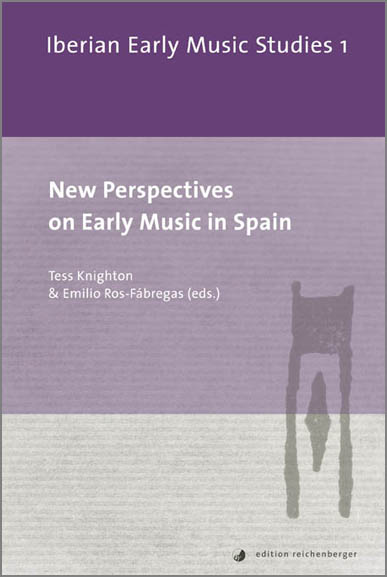New Perspectives on Early Muscic in Spain ∥ Knighton, Tess & Ros-Fábregas, E.(ed.)
-----------------------------------
ISBN13: 9783944244150
-----------------------------------
サイズ: 16.5 x 24 x 4.4 cm
-----------------------------------
頁 数: xiv+538 pgs.
-----------------------------------
装 丁: paper cover
-----------------------------------
出版社: Reichenberger
-----------------------------------
発行年: 2015
-----------------------------------
発行地: Kassel
-----------------------------------
双書名: Iberian Early Music Studies, 1
Description:
In recent years there has been a resurgence of interest in Spanish music of the Middle Ages and Early Modern period on the part not only of scholars but also of performers and listeners, and not only from inside Spain but also from without. However, the research activity stimulated by this interest has mostly been published in Spanish and within Spain, and has yet to establish a clear narrative in a broader European context. Histories of Western European music still tend to present only brief surveys of musical developments in Spain before 1600, and the extent to which the musics and musicians of the Spanish kingdoms formed an integral part of a wider cultural map has rarely been considered in depth.
This volume brings together research by scholars, both well established and of younger generations, both Spanish and from all over the world, that offers new perspectives on many aspects of early musical culture in the Peninsula whether regarding the Ars Nova or the Counter-Reformation, music historiography or analysis, early improvisation techniques or imitatio in Renaissance polyphony, and questions of performance practice or ambassadorial musical networks. These essays will thus hopefully make an important contribution to establishing and sustaining a valuable discourse with that broader European context.
CONTENTS
Introduction
1. Tess Knighton & Emilio Ros-Fábregas: Iberian Music Research in the Twenty-First Century
Music Historiography and Reception
2. Emilio Ros-Fábregas: Higini Anglès’s Defense of Medieval and Renaissance Sacred Music in Mid-20th Century Rome - 3. Kateryna Schöning: Vocal Basis in Tientos by Luis Milán and Alonso Mudarra: Myth or Reality? - 4. Stephanie Klauk: Problems of Authenticity in the Works of Tomás Luis de Victoria: Some Methodological Considerations
Sources Discovered and Revisited
5. Santiago Galán Gómez: A New Source of Notre Dame Polyphony from Spain: The Manuscript Toledo, Biblioteca Capitular, 98-28 and its Repertory - 6. David Andrés-Fernández: Corpus processionalum in Late Medieval Aragon: Manuscripts, Attributes and Special Features - 7. Michael Noone & Graeme Skinner: Multum in parvo: A 1555 Morales Processional Partbook at Toledo Cathedral - Its Genesis, Use and Later History - 8. Javier Marín López: Music Books for an iglesia principal y calificada: The 1657 Inventory of Jaén Cathedral in Context
Patrons and Patronage
9. Ángel Manuel Olmos: A New Identity for the ‘Medina’ Attribution in the Cancionero Musical de Palacio - 10. Ferrán Escrivà Llorca: Power, Erudition and Musical Patronage in the Sixteenth Century: The Borja Dynasty and the Dukedom of Gandia - 11. Erika Supria Honisch: Light of Spain, Light of the World: Invoking St James in Rudolfine Prague - 12. Greta J. Olson: Juan Bautista Comes and Conflicting Aims of Church and State in Early Seventeenth-Century Valencia
Liturgy and Music
13. Juan Carlos Asensio: ‘Before retiring at the close of day …’: The Hymnary for Compline in the Escorial’s Choirbook Collection - 14. Mercedes Castillo Ferreira: A Fifteenth-Century Plainchant Office by Hernando de Talavera to Commemorate the Battle of Salado - 15. Gonzalo Roldán: Music and Ceremony in Granada Cathedral following the Council of Trent
Music Notation and Analysis
16. Sarah Johnson: Similarity and Contrast in the Cantigas de Santa Maria - 17. Mary E. Wolinski: The Case of the Disappearing Rests: A New Look at the Spanish In seculum Hocket in Madrid, Biblioteca Nacional de España, MS 20486 - 18. Rory McCleery: Duo seraphim clamabant: Homage, ‘Parody’ and Marian Symbolism in a Motet and Antiphon from Renaissance Seville
Theory, Teaching and Improvisation
19. Amaya Sara García Pérez: Music and Architecture in the Historic Façade of the University of Salamanca - 20. Ascensión Mazuela: Artes de canto and Music Teaching in the Renaissance Iberian World - 21. Giuseppe Fiorentino: Con ayuda de nuestro señor: Teaching Improvised Counterpoint in Sixteenth-Century Spain - 22. Luca Bruno: Improvisational Practice and Harmonic Composition in Mid-Sixteenth-Century Italy and Spain
Traditions of Performance
23. Mauricio Molina: Non se tenga por maestra complida: The Skilful Medieval Female Performer and Her Challenge to the Social and Intellectual Space Dominated by Males - 24. Pilar Ramos López: The Spanish Prohibition on Women Listening to Music: Some Reflections on Juan Luis Vives and the Jewish and Muslim Legacy - 25. Sergi Zauner: Revising Polyphonic Lamentations: Composition, Transmission and Performance Practice Context - 26. Hector Sequera: Alternatives to the ‘English a cappella heresy’: Performance Practice of Sacred Spanish Polyphony in English Domestic Circles based on Elizabethan and Early Jacobean Sources
By Way of Coda: A Change of Perspective
27. Leo Treitler: Reflections on Our Mimetic Heritage: From Plato to Louis Vuitton
-

RAE(スペイン王立アカデミー)とASALE(スペイン語アカデミー協会)が共同編集した改定新版「アカデミア最新スペイン語文法」シリーズ(既刊3巻)。2025年10月に刊行された本書は、その第4巻(最終巻)です。 2011年版の 555頁から 新版は 700頁余と大幅に改訂増補 !!
※ スペイン語の音声を体系的に理解するための資料として、研究者、教育関係者、上級学習者に不可欠であり、大学図書館・研究室にも必須の一冊です。
※ 大幅な改訂と更新: 旧版以降に進んだ最新の研究成果、特に言語の「バリエーション」に関する知見を全面的に反映。技術の進歩を活用し、内容の理解を助けるための工夫が凝らされています。
※ 具体的な革新点: 知覚音声学への配慮、第1章の全面的な書き直し、イントネーションを扱う第10章の大幅な改訂、QRコードによる発音サンプルの導入、補足的な参考文献の追加など。- Nueva gramática de la lengua española: Fonética y fonologia ∥ R.A.E.
- ¥16,500
-

※ スペイン王立アカデミーとASALE(スペイン語アカデミー協会)が共同編纂した、スペイン語の語彙の歴史を包括的に記録する辞書。語源・形態・意味の変化を詳細に解説しています。
※ DHLE(スペイン語歴史辞典)プロジェクトは現代のデジタル技術と国際的な共同作業体制を駆使して進行中の画期的な取り組み。
※ 10巻本・合計2万ページ超となる今回の紙書籍版(印刷版)は本プロジェクトの記念碑的な出版物。図書館・研究室の重要資料として長期保存の価値が高い文献になります。今後の更新はデジタル版に移行する見込みで、今回の書籍版は将来入手困難になることが予想されます。
※ 全10巻のうち、第1~3巻は現在では入手困難な1960年~1996年版(a-apasanca、b-bajoca)の復刻版です。過去の貴重な学術的成果であり、一次史料としての価値が高いものです。
※ 第4~10巻は2005年以降に進められたデジタル版DHLEから代表的な項目を抜粋して構成。
収録内容はスペイン語語彙史研究の最新成果を反映し厳選されています。- Diccionario histórico de la lengua española. in 10 vols. ∥ R.A.E. ※ 年度末セール特価 ※ 在庫品先着一名様限り 即納可!
- ¥186,120
-

次回入荷は2月初旬の予定です!!
第2版 増補改訂版3巻本 「アカデミア最新スペイン語文法」。2009年に2巻本として出版されてから16年、さらに広く深く、スペイン語圏全体のスペイン語を総合的に扱うスペイン語文法書の決定版です!
本書はスペイン王立アカデミー(RAE)とASALE が共同で編纂した最新のスペイン語文法を、より精緻に再構成した改訂増補版であり、形態論から統語論に至るまで、スペイン語の構造を体系的かつ包括的に示す研究書です。従来版よりも内容説明が充実し、分析の明確化、現象の地理的・社会的分布に関する情報の拡充、さらに学習者・研究者双方に配慮した丁寧な解説が加えられています。全3巻・約5000頁に及ぶ大部の構成は、汎ヒスパニック的視点を重視し、スペイン語圏全体の多様性を踏まえた記述を特徴としています。記述文法と規範文法の両面を兼ね備え、学術研究・高度教育機関において必携の基礎資料となる一冊です。- Nueva gramática de la lengua española - Edicion revisada y ampliada in 3 vols. ∥ Real Academia Española
- ¥49,500

